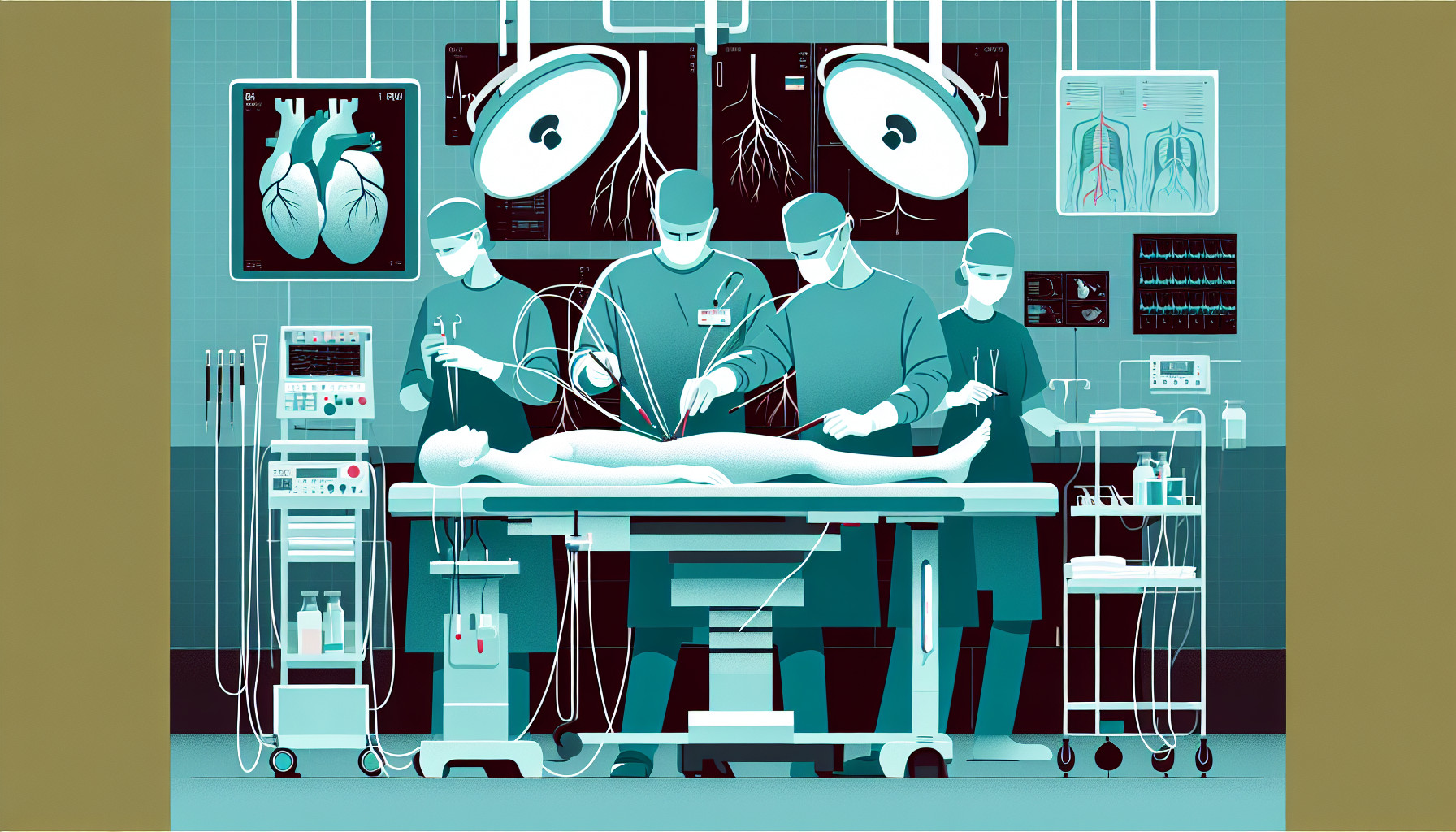Our Summary
This research paper discusses the potential of using stem cells for creating tissue-engineered vascular grafts (TEVGs) - a new type of blood vessel replacement that could be used in operations for heart disease. At the moment, the main options for this kind of operation are using either the patient’s own blood vessels or synthetic ones. But these methods aren’t perfect, and scientists are looking for better alternatives.
TEVGs could be a solution, but one of the main challenges is getting enough suitable vascular cells to make them. The researchers in this study have looked into using adult stem cells and pluripotent stem cells (which can become any type of cell) as a possible solution. They’ve reviewed the latest developments in this area, including the pros and cons of different types of stem cells and how they might be used in the future.
The paper concludes by saying that using stem cells to create TEVGs could have huge benefits for patients, as they could have a graft made from their own cells, reducing the chances of their body rejecting it. The authors believe that with more research and development, this technique could become a reality.
FAQs
- What are tissue-engineered vascular grafts (TEVGs) and how are they used in treating cardiovascular disease?
- What are the benefits and drawbacks of using adult stem cells and pluripotent stem cells in the fabrication of TEVGs?
- What advancements have been made in the application of patient-specific TEVGs constructed with immune-compatible stem cells?
Doctor’s Tip
A helpful tip a doctor might tell a patient about vascular bypass is to follow a healthy lifestyle, including regular exercise, a balanced diet, and avoiding smoking, to help maintain the health of the blood vessels and reduce the risk of future complications. Additionally, it is important for the patient to closely follow their post-operative care instructions and attend all follow-up appointments to monitor the success of the bypass surgery.
Suitable For
Patients who are typically recommended vascular bypass surgery are those who have blocked or narrowed blood vessels that cannot be treated with medication or minimally invasive procedures. These patients may have conditions such as peripheral artery disease, coronary artery disease, or carotid artery disease. Vascular bypass surgery may also be recommended for patients who have had previous bypass grafts that have become blocked or are no longer functioning properly.
Timeline
Before vascular bypass:
- Patient presents with symptoms of cardiovascular disease, such as chest pain, shortness of breath, or fatigue.
- Patient undergoes diagnostic tests, such as an angiogram, to determine the location and severity of blockages in the blood vessels.
- Surgical team evaluates the patient’s condition and determines that a vascular bypass procedure is necessary.
- Patient undergoes pre-operative preparations, including blood tests, imaging scans, and consultations with the surgical team.
After vascular bypass:
- Patient undergoes vascular bypass surgery, during which a healthy blood vessel is used to bypass the blocked or damaged artery.
- Patient is monitored closely in the immediate post-operative period for any complications, such as bleeding or infection.
- Patient undergoes a period of recovery in the hospital, during which they may receive pain medication and physical therapy to aid in their recovery.
- Patient is discharged from the hospital and continues to recover at home, following a prescribed regimen of medications and follow-up appointments with their healthcare team.
- Patient undergoes regular follow-up appointments to monitor their progress and ensure the success of the vascular bypass procedure in restoring blood flow to the affected area.
What to Ask Your Doctor
- What are the different types of vascular bypass grafts available and which one would be most suitable for my specific condition?
- What are the potential risks and complications associated with vascular bypass surgery?
- How long is the recovery period after vascular bypass surgery and what can I expect during the recovery process?
- Are there any lifestyle changes or medications that I will need to follow post-surgery to ensure the success of the vascular bypass?
- What are the long-term outcomes and success rates of vascular bypass surgery in patients with similar conditions to mine?
- Is there a possibility of needing additional surgeries or treatments in the future after undergoing a vascular bypass?
- Are there any alternative treatments or therapies available for my condition besides vascular bypass surgery?
- How will the vascular bypass surgery improve my symptoms and overall quality of life?
- Will I need to undergo any additional tests or evaluations before undergoing vascular bypass surgery?
- Are there any specific instructions or precautions I should follow before and after the vascular bypass surgery to ensure the best possible outcome?
Reference
Authors: Wang L, Hu J, Sorek CE, Chen EY, Ma PX, Yang B. Journal: Expert Opin Biol Ther. 2016;16(3):317-30. doi: 10.1517/14712598.2016.1118460. Epub 2015 Dec 8. PMID: 26560995
